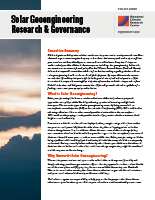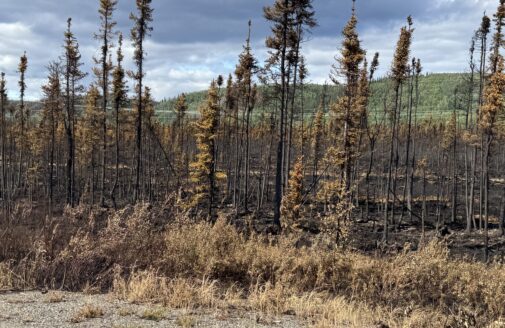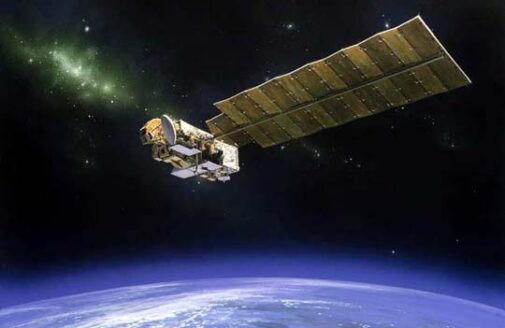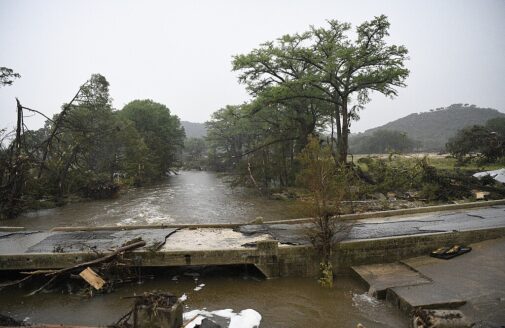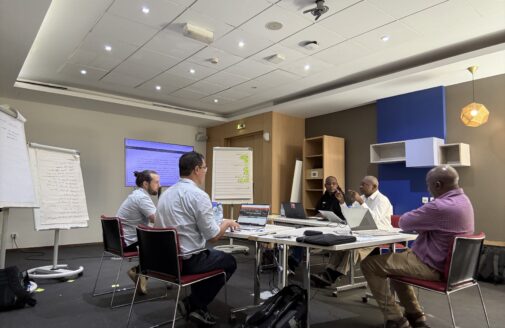Solar geoengineering research & governance

Why is Woodwell Climate Research Center releasing a statement on solar geoengineering research & governance?
As we face increasingly severe climate change, some researchers are calling for an expansion of research into solar geoengineering to better understand the risks and the potential of this set of technologies and approaches to rapidly limit global temperature rise. Concurrently, some governments, including the Biden Administration, are also starting to consider research on this topic.
Since 1985, Woodwell Climate has conducted science for solutions at the nexus of climate, people, and nature. In alignment with our mission, we have an obligation to consider all potential climate responses, including solar geoengineering. Furthermore, Woodwell Climate leadership and scientists are sought-after and trusted experts who are increasingly asked by policymakers and the media for our views on the matter. To inform our thinking, Woodwell Climate conducted a 6-month process to develop an institutional position on solar geoengineering research and how such research could be responsibly governed. The process has included several lectures from leading experts and internal discussions.
Executive Summary
While mitigation and adaptation solutions are the most important actions society must take to address climate change, we must recognize the prospect that these solutions may not be taken up at sufficient pace or scale to avoid considerably more severe and irreversible climate disruption. Society now needs to soberly consider additional climate responses, including solar geoengineering. In line with our commitment to science-informed policy, Woodwell Climate Research Center (Woodwell Climate) believes that responsible research is needed to inform decision-making regarding whether and how solar geoengineering should ever be considered for deployment. By responsible research, we mean research that (1) tackles priority scientific (including social science) and ethical questions; (2) is international in scope, with meaningful participation of researchers and civil society members from Global South nations and Indigenous communities; (3) is well-governed, with robust guidelines for funding sources, transparency, equity, and inclusion.
What is Solar Geoengineering?
Solar geoengineering (also known as solar radiation modification) refers to proposed approaches to rapidly cool the Earth by reflecting a portion of incoming sunlight back into space. The two main types of solar geoengineering currently being researched are stratospheric aerosol injection (SAI) and marine cloud brightening (MCB). SAI would involve releasing reflective sulfate or other aerosol particles via aircraft into the stratosphere. MCB would entail spraying sea salt particles into low-lying marine clouds to increase cloud brightness and reflectivity.
Current research indicates that, if ever deployed, solar geoengineering could reduce surface temperatures and potentially limit the risks of crossing climate ‘tipping points’ and other climate change harms. Yet, it would not address the root causes of climate change (rising concentrations of carbon dioxide and other greenhouse gases in the atmosphere), nor some of their most harmful consequences, such as ocean acidification. Solar geoengineering would also bring significant additional biophysical and sociopolitical risks, many of which remain poorly understood. Society currently lacks a sufficiently robust basis upon which to make informed decisions about whether and under what conditions solar geoengineering might be considered a viable response to climate change.
Why Research Solar Geoengineering?
The most important actions society must take to limit climate change are (1) swiftly and deeply reducing greenhouse gas emissions, (2) accelerating approaches to draw carbon dioxide out of the atmosphere and (3) preparing for now unavoidable climate impacts. Woodwell Climate is committed to ensuring that these climate solutions are grounded in robust science, and protect and enhance biodiversity and human well-being.
We further recognize our responsibility to help prepare for the prospect that these climate solutions may not be taken up at sufficient pace and scale to avoid considerably more severe and irreversible harm due to climate change. Our scientific research underscores both the need for urgent climate action and the increasing risk that further warming will dangerously accelerate net emissions via climate feedbacks from thawing Arctic permafrost and dieback of Amazonian rainforest.
Society now needs to soberly consider additional climate responses, including solar geoengineering, that themselves pose considerable risks and uncertainties. SAI, for example, would have highly uncertain impacts on stratospheric ozone, regional precipitation patterns, crop production, ecosystem services, marine health and productivity, air quality, and geopolitical stability. Little is known about how deploying solar geoengineering may affect commitments to reduce emissions or how it could be deployed and effectively governed over the many decades-to-centuries time scale needed to avoid “termination shock”—the abrupt rise in global temperature that would occur if solar geoengineering were stopped before atmospheric concentrations of greenhouse gases were substantially lowered.
Today, research on solar geoengineering is limited, and too often narrowly focused on climate modeling that assumes an optimized, globally coordinated deployment. Alternative scenarios, such as regionally-focused deployment or possible deployment by rogue actors, deserve greater attention. The highest priority for research is to understand the risks and potential of solar geoengineering in a changing climate, not to accelerate a pathway to deployment. For example, outdoor experiments should be constrained to small scales, without causing changes to global temperatures or posing adverse environmental impacts. Such experiments could provide insights and improve our confidence in the outcomes from modeling.
Position on Solar Geoengineering Research & Governance
In line with our commitment to science-informed policy, Woodwell Climate believes that responsible research is needed to inform decision-making regarding whether and how solar geoengineering should ever be considered for deployment. By responsible research, we mean research that (1) tackles priority scientific (including social science) and ethical questions; (2) is international in scope, with meaningful participation of researchers and civil society members from Global South nations and Indigenous communities; and (3) is well-governed, with robust guidelines for funding sources, transparency, equity, and inclusion.
Robust international governance is also needed to guide future decision-making on whether or not to deploy solar geoengineering as a climate response. Such governance mechanisms are lacking today. Woodwell Climate supports efforts to ensure that decision-making on possible future deployment of solar geoengineering is inclusive, equitable, and participatory—consistent with a human-rights-based approach.
Woodwell Climate recognizes the importance of developing guiding principles for good governance of future decision-making on solar geoengineering. Guiding principles should inform, rather than prescribe, decisions and ensure the adaptability of future governance frameworks to changing climatic and geopolitical contexts. They should reaffirm existing obligations owed by governments and non-state actors according to international, national, and common law, including commitments to deep decarbonization and carbon dioxide removal as the primary means to limit climate change. Important dimensions include public participation in decision-making; free prior and informed consent; transparency; independent assessments and review of impacts; and the establishment of free and fair accountability mechanisms.




